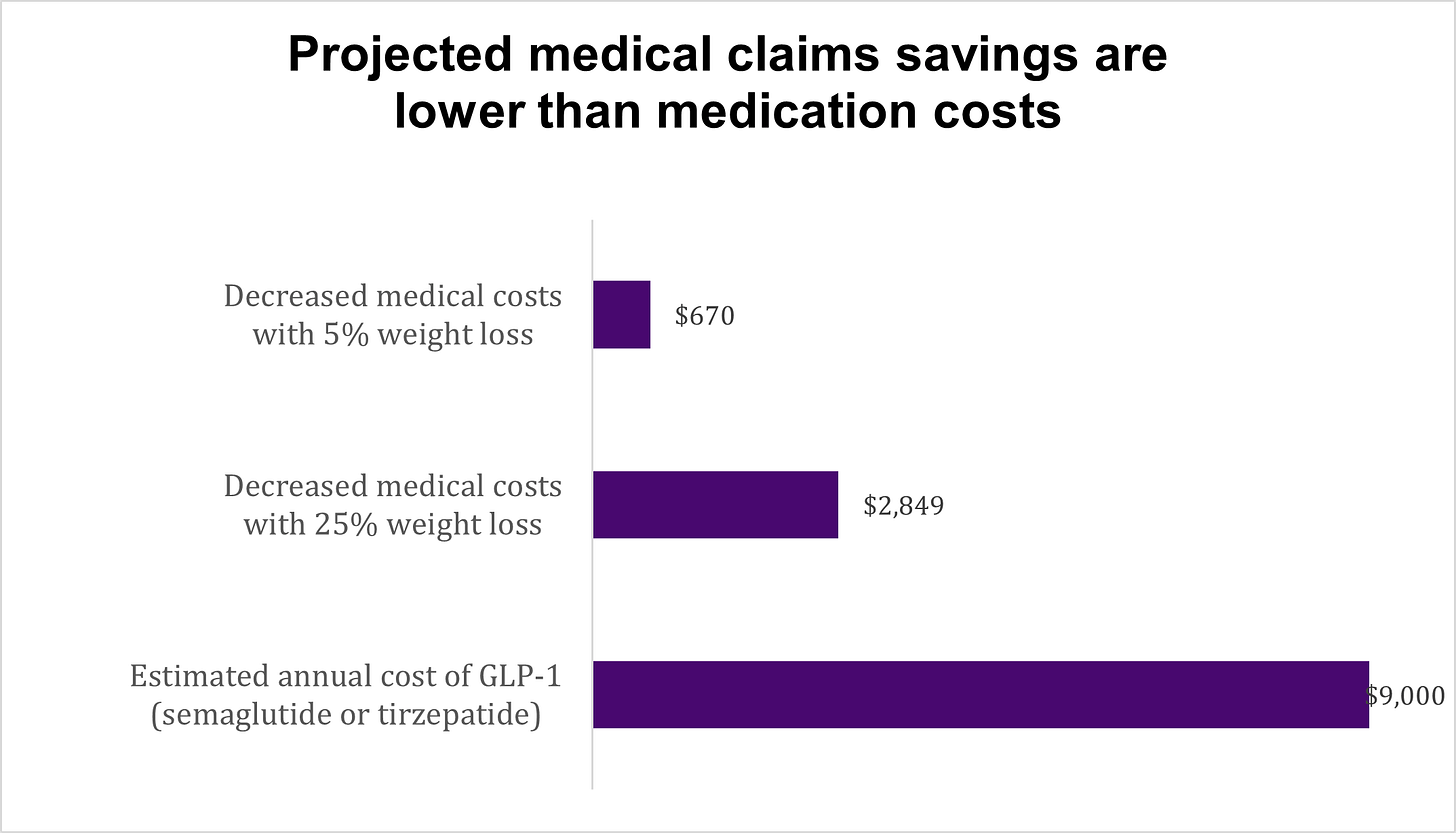Lower BMIs can mean lower medical costs, but GLP-1s are still not likely to be cost saving at current prices
December 31, 2024
Summary: GLP-1s can lower health care utilization and costs, but not enough to be cost-saving.
Thorpe, K et al JAMA Network Open December 5, 2024
The evidence that GLP-1 medications are effective at weight loss and reducing metabolic disease burden in those with obesity continues to mount, but only about 52% of employers currently cover these drugs for obesity, and these employers are facing escalating costs.
Previous research has shown that the cost of these drugs will exceed any medical cost savings, as is true for most medical interventions. (For instance, medical plans don’t save money by treating cancer or providing dialysis for patients with kidney failure.)
JAMA Network Open published an analysis earlier this month that demonstrated that health care spending could decrease based on the type of weight loss seen with use of GLP-1 medications. However, the study demonstrates once again that even with their impressive impacts on patient weight and health, an employer sponsored health insurance plan should not expect net medical savings from these medications.
The researchers reviewed medical claims from over 13,000 commercially insured adults from the Medical Panel Expenditure Survey from 2001 through 2020 and found that medical spending was lower in those who weighed less. Therefore, cost-effectiveness of an effective weight loss drug would be much higher in those with higher BMIs, especially in those with diabetes.
However, the study did not evaluate people who had lost weight, but rather examined differences in costs based on BMI. Those who lose weight will not necessarily have the same lower level of expense as those who were not previously obese. Even if their estimate of cost “savings” is accurate, the net cost of semaglutide or tirzepatide is around $9,000 annually, which is more than the delta in costs for a person with diabetes who loses 25% of body weight.
Thorpe, K et al JAMA Network Open December 5, 2024 and WTW estimate of net cost of Wegovy or Zepbound.
Implications for employers:
- An employer-sponsored health insurance plan should not expect net medical savings from these medications even with their impressive impacts on patient weight and health.
- The decision to cover these medications should be based on the benefit they offer, and not the hope of lower medical expenses. Lower prices would allow more to benefit from these medications.




